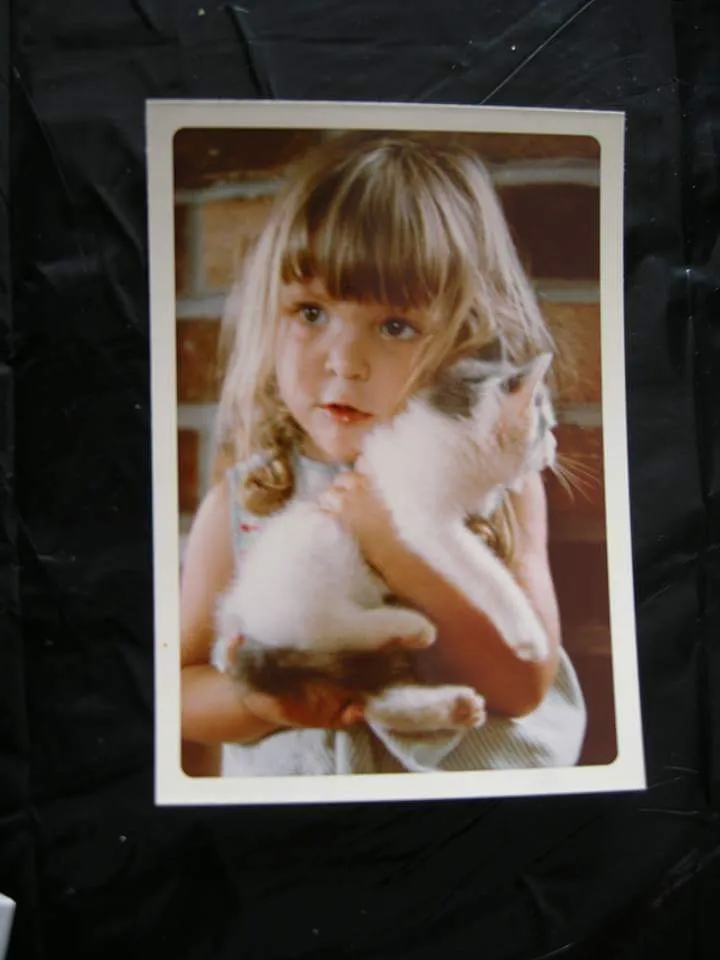Can You Bathe a Kitten with Baby Shampoo? A Friendly Guide to Keeping Your Feline Clean and Healthy • Kritter Kommunity
WONDERING IF YOU CAN BATHE A KITTEN WITH BABY SHAMPOO?
If you’re pondering whether a foamy bath using baby shampoo is suitable for your adorable kitten, you’ve landed on the purrfect corner of the internet. When Finnegan (my Tuxedo cat) was just a kitten, I needed to bathe him as soon as he arrived to his forever home. Since cat shampoo was not yet on my kitten supplies list, I used baby shampoo. This post is all about, can you bathe a kitten with baby shampoo; the human type.
In this guide, I’ll dive in, exploring the do’s and don’ts, the ins and outs, to ensure your fluffy companion stays clean, healthy, and happy.
CAN YOU BATHE YOUR KITTEN WITH BABY SHAMPOO?
If you have a kitten, you may be wondering if it’s safe to use baby shampoo for their bath. After all, baby shampoo is gentle enough for human infants, so it should be safe for your kitten, right? The short answer is that you can use baby shampoo on your kitten, but it’s not the best option.
RELATED: Tips For Discouraging Kitten Biting
YOU CAN BATHE A KITTEN WITH BABY SHAMPOO
While baby shampoo is gentle, it’s designed for human babies, not kittens. Using baby shampoo on your kitten can disrupt the pH balance and acid mantle of their skin, which can lead to irritation and other skin problems. Additionally, baby shampoo may not effectively remove all the dirt and debris from your kitten’s fur, leaving them less than clean after their bath.
IF YOU HAVE TO BATHE A KITTEN, BABY SHAMPOO IS BETTER THAN NO BATH
“Baby shampoos are designed to be gentle for human babies and also work well for kittens. You can also use fragrance-free dish detergent. No matter what soap you use, avoid your kitten’s eyes and try to keep the inside of their ears dry.” –Animal Humane Society
So, while baby shampoo is not the best choice for your kitten, there are other options that are safe and effective for their bath. In the next section, we’ll explore some of these options and what to look for when choosing a kitten shampoo.
Understanding Kitten Bathing
If you’re a new kitten owner, you may be wondering if you need to bathe your kitten and if so, how often. Kitten bathing is an important part of keeping your kitten healthy and clean, but it’s important to do it right to avoid causing harm to your furry friend. In this section, we’ll go over some important things to keep in mind when it comes to bathing your kitten.
When to Start Bathing a Kitten
It’s generally recommended to start bathing your kitten when they are around 8 weeks old. However, if your kitten is particularly dirty or has fleas, you may need to bathe them earlier. It’s important to note that kittens are sensitive creatures, so you’ll want to be gentle when handling them during bath time.
Benefits of Bathing Your Kitten
Bathing your kitten has many benefits, including:
- Keeping their coat clean and healthy
- Reducing the risk of fleas and other parasites
- Helping to prevent hairballs
- Building trust between you and your kitten
When it comes to choosing a shampoo for your kitten, you want to make sure to choose one that is specifically formulated for kittens. Baby shampoo may seem like a good option, but it’s important to note that it may not be the best choice for your kitten. While it may be gentle on babies, it may not be gentle enough for your kitten’s sensitive skin. It’s best to stick with a shampoo that is specifically formulated for kittens to avoid any potential irritation or harm.
WHAT BABY SHAMPOO IS GOOD FOR KITTENS?
If you’re wondering about the best baby shampoo for your kitten’s bath time, you’ve found yourself in the right spot.
MY FAVORITE IS BABY SHAMPOO FOR KITTENS IS AVEENO
WHAT CAN I USE TO BATHE MY CAT IF I DON’T HAVE KITTEN SHAMPOO?
Let me introduce you to the world of kitten baths and the wonders of baby shampoo—I’m no stranger to this topic myself. You see, when Finnegan, my fluffy companion, was just a wee little ball of fur, I used baby shampoo to keep him clean and cuddly. And let me tell you, it worked wonders!
Now, Johnson’s Baby Shampoo is often recommended for feline baths, especially for its gentle formula. But, from personal experience, I’ve also found Aveeno to be fantastic, leaving Finnegan’s fur irresistibly soft while also moisturizing his delicate skin.
Oh, and don’t get me started on Baby Dove Moisturizing—another top-notch choice that’s left Finnegan feeling like a purring cloud of fluff! I used this shampoo on him when we moved and were staying in a hotel.
While cats typically keep themselves spick and span, the occasional bath can be beneficial, especially for outdoor kitties or those pesky flea encounters. I’ve learned that being gentle during bath time is key because, let’s face it, most cats aren’t fans of water! But fear not, with the right shampoo and a tender touch, you can make bath time a bearable experience for your furry friend.
In this guide, we’ll unravel the do’s and don’t of cat bathing, explore various baby shampoo options, and dish out tips for an stress-free bath experience for both you and your kitty.
So, before you dive into the world of feline hygiene, let’s explore the best baby shampoos fit for your precious kitten’s bath time.”
If you’re planning to give your kitten a bath, choosing the right shampoo is crucial. Kittens have delicate skin that requires gentle care. In this section, we’ll discuss the different types of shampoos and which ones are best for your kitten.
RELATED: When to Let Your Kitten Roam Free: A Guide to Creating a Safe Space
Can You Use Baby Shampoo?
You may be wondering if you can use baby shampoo on your kitten. While baby shampoo is safe for cats, it’s not the best choice for a few reasons.
Yes, you absolutely can. Try not to make it a regular occurrence.
FULL DISCLOSURE: I bathed three cats (two kittens, one adult cat) in baby shampoo more than 4x times each and it worked great. None of them had any issues and my cats fur and skin improved after each bath. My favorite is Aveeno, but I also liked the Dove.
Baby shampoo is designed for human babies, not cats. It may contain fragrances, dyes, and other ingredients that can be irritating to your kitten’s skin. Additionally, baby shampoo is not formulated to remove the oils and dirt from your kitten’s fur.
SIMPLY USE FRAGRANCE FREE BABY SHAMPOO WHEN BATHING YOUR KITTEN
If you do decide to use baby shampoo, make sure it’s a fragrance-free and gentle formula. However, it’s always best to use a shampoo that’s specifically designed for kittens.
Shampoo Alternatives for Kittens
If you don’t have kitten shampoo on hand, there are a few gentle alternatives you can use. These include:
- Water: You can use warm water to rinse your kitten’s fur and remove any dirt. Be sure to keep your kitten warm during the bath, as they can’t regulate their body temperature yet.
- Aloe vera: Aloe vera is a natural moisturizer that can soothe your kitten’s skin. You can use aloe vera gel or a shampoo that contains aloe vera.
- Oatmeal: Oatmeal is another natural ingredient that can soothe your kitten’s skin. Look for a shampoo that contains oatmeal or make your own by mixing oatmeal with warm water.
When choosing a shampoo for your kitten, look for one that’s specifically formulated for kittens. These shampoos are gentle and won’t irritate your kitten’s skin. Additionally, they’re formulated to remove dirt and oils from your kitten’s fur, leaving them clean and soft.
While baby shampoo is safe for cats, it’s not the best choice for your kitten. Look for a shampoo that’s specifically formulated for kittens or use a gentle alternative like water, aloe vera, or oatmeal.
Preparing for the Bath
Before giving your kitten a bath with baby shampoo, you need to prepare a few things. This will ensure that the bath goes smoothly and your kitten stays calm and happy throughout the process.
Gathering Supplies
First, gather all the supplies you will need. These include:
Make sure the baby shampoo you’re using is safe for kittens. Check with your vet if you’re not sure which brand to use.
Setting Up the Bath Area
Next, set up the bath area. Fill the tub or sink with a few inches of warm water. Make sure the water temperature is comfortable for your kitten, not too hot or too cold.
Place the non-slip mat or towel at the bottom of the tub or sink. This will help your kitten feel more secure and prevent slipping and sliding.
Bring your kitten into the bathroom and place them in the tub or sink. Make sure your helper is nearby to assist you.
Now that you have everything ready, it’s time to give your kitten a bath with baby shampoo.
Bathing Your Kitten Step by Step
Bathing your kitten can be a fun and bonding experience for both you and your furry friend. However, it is important to use the right shampoo to avoid any skin irritation or discomfort. While baby shampoo is gentle and safe for human babies, it may not be the best choice for your kitten.
Wetting the Kitten
Before you begin, make sure you have all the necessary supplies within reach, including a towel, a cup or spray nozzle, and kitten shampoo. Fill a sink or basin with warm water and gently wet your kitten’s fur, avoiding the face and ears. You can use a cup or spray nozzle to wet your kitten, but be sure to hold them securely to prevent them from slipping or jumping out of the sink.
Applying the Shampoo
Once your kitten is wet, apply a small amount of kitten shampoo to their fur and lather gently. Avoid getting any shampoo in their eyes, nose, or mouth. Massage the shampoo into their fur using your fingers, and pay special attention to any areas that are particularly dirty or greasy.
Rinsing Thoroughly
After you have thoroughly shampooed your kitten, it’s time to rinse them off. Use warm water to rinse the shampoo out of their fur, making sure to remove all traces of shampoo. Rinse their fur thoroughly to avoid any skin irritation or discomfort. Once you have rinsed your kitten, wrap them in a towel and gently pat them dry.
In summary, while baby shampoo may be gentle and safe for human babies, it may not be the best choice for your kitten. When bathing your kitten, make sure to use a kitten-specific shampoo to avoid any skin irritation or discomfort. Remember to wet your kitten’s fur, apply shampoo gently, and rinse thoroughly to ensure a positive and enjoyable experience for both you and your furry friend.
After the Bath
Drying Your Kitten
Once you have finished bathing your kitten, it is important to dry them off properly. Use a soft towel to gently pat them dry, taking care not to rub too hard and irritate their skin. You can also use a hair dryer set on low heat, but make sure to keep it at least a foot away from your kitten to avoid burning them.
If your kitten has long hair, you may want to use a comb or brush to help remove any tangles while you dry them. Be gentle and use a wide-toothed comb to avoid causing any discomfort or pain.
I always used a double-sided lice comb on all my cats even adult cats; also, using a comb with rounded needles will be softer on your kitten’s skin. This is important when your kitten is wet and his skin is more exposed.
RELATED: How Contagious is Cat Lice?
Post-Bath Care
After your kitten is dry, it’s important to continue to monitor them for any signs of discomfort or irritation. Check their skin for any redness or rash, and keep an eye out for excessive scratching or licking.
If your kitten seems uncomfortable, you can try applying a small amount of aloe vera gel or coconut oil to their skin to help soothe any irritation. You can also use a flea comb to check for any signs of fleas or ticks, and apply a flea treatment if necessary.
Remember, it’s important to only use products specifically designed for cats when caring for your kitten. While baby shampoo may be gentle, it can still cause irritation or dryness if used too frequently. Stick to cat-specific products when possible. I wrote a post on best cat shampoos, and they can work well on kittens too!
My rule of thumb is, kittens use baby shampoo OR cat shampoo. Adult cats I typically stick with cat shampoo.
Safety Tips and Considerations
When bathing a kitten, it is important to take certain safety precautions to ensure that the experience is as stress-free and safe as possible. Here are some things to keep in mind:
Avoiding Water in Ears and Eyes
Kittens are sensitive to water getting in their ears and eyes, which can cause discomfort and even infection. To avoid this, use a washcloth or cotton ball to gently clean around the eyes and ears instead of pouring water directly on them.
Monitoring Water Temperature
It is important to use warm water when bathing a kitten, but not too hot. Kittens have sensitive skin and can easily get burned by water that is too hot. Test the water temperature with your wrist or elbow before bathing your kitten. The water should be warm but not hot to the touch.
Understanding Kitten Skin Sensitivity
Kitten skin is more delicate and sensitive than adult cat skin. Using harsh or strong shampoos meant for adult cats or humans can irritate their skin. To avoid this, use a gentle shampoo specifically designed for kittens. Baby shampoo is often recommended as a gentle alternative, but make sure to choose a brand that is unscented and does not contain any harsh chemicals.
By following these safety tips and considerations, you can ensure that bathing your kitten is a safe and stress-free experience for both you and your furry friend.
When to Consult a Veterinarian
While bathing your kitten with baby shampoo is generally safe, there are times when you should consult a veterinarian. Here are some signs that indicate it’s time to seek professional help.
Signs of Skin Irritation
If you notice redness, swelling, or any other signs of skin irritation after bathing your kitten with baby shampoo, it’s best to consult a veterinarian. Your kitten may be having an allergic reaction to the shampoo or have a pre-existing skin condition that needs medical attention. The veterinarian may prescribe medicated shampoo or ointment to help alleviate the irritation.
Behavioral Concerns Post-Bath
If your kitten exhibits behavioral changes after bathing, such as excessive grooming, hiding, or aggression, it’s time to consult a veterinarian. These changes may indicate that your kitten is experiencing discomfort or pain. A veterinarian can examine your kitten and determine if there is an underlying medical issue that needs to be addressed.
If you have any concerns about bathing your kitten with baby shampoo or notice any signs of skin irritation or behavioral changes, don’t hesitate to consult a veterinarian. They can provide you with the guidance and support you need to keep your kitten healthy and happy.
Lisa Illman is the Founder of Kritter Kommunity, LLC. She has a tuxedo adult cat and has had him since he was a baby kitten. Before her cat Finnegan, Lisa had had two FIV-positive cats for over a decade. They inspired Lisa to invent a cat enclosure and a portable catio so they could safely sit outside and enjoy fresh air and sunshine. Lisa had a Poodle and a parakeet growing up. She currently loves to pet-sit for her neighbors’ dogs and cats.









Why is Kritter Kommunity Your Trusted Partner?
Our mission at Kritter Kommunity is to promote happy and healthy lives for pets and their owners. We specialize in Barkitecture and designing tips for pet-friendly homes, utilizing the natural instincts of cats, dogs, and small critters to create a home life that pets and people love. From tips on pet care to reviews on pet toys and furniture, we are a go-to source for all things cats, dogs and small critters. Join us in celebrating the joys of pet ownership and providing the best possible lives for our furry friends.
